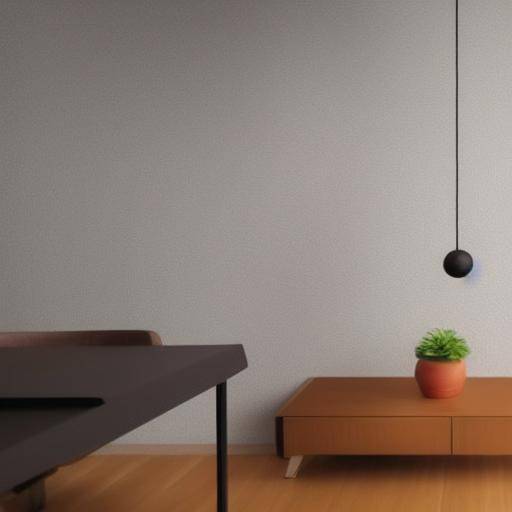
Minimalism is much more than an aesthetic tendency; it has become a lifestyle that promotes simplification, savings and control. In a society obsessed with consumerism and material possessions, minimalism offers a refreshing alternative with multiple benefits. In this article, we will explore in depth how minimalism can help you avoid unnecessary expenses, lead a more balanced life and foster greater control over your finances.
Simplification: The Key to a More Significant Life
Minimalism is based on the philosophy of simplifying your life by getting rid of the unnecessary to make room for what is really meaningful. By reducing the amount of possessions and material commitments, you can focus on what really matters, thus avoiding the pressure to maintain an expensive and consumer-driven lifestyle.
Since its beginnings in the 1960s and its subsequent development in movements such as "minimum art" and "minimum design", the concept of minimalism has evolved into a holistic approach that encompasses various areas of daily life.
Savings: The reward of living with less
One of the most obvious advantages of adopting a minimalist approach is economic savings. By reducing impulsive purchases, simplifying their possessions and focusing on the essentials, you will spend less money on material goods and more on meaningful and lasting experiences. This saving mentality will allow you to assign your money to what you really value, such as travel, education, personal efforts or long-term financial security.
Control: Dominate your finances and your life
In addition to economic savings, minimalism gives greater control over its finances. By simplifying your possessions and expenses, you will have a clearer view of your income and expenses, facilitating more informed and conscious financial decisions. Having control over your finances will allow you to set realistic goals, avoid unnecessary debts and live in a more peaceful and balanced way.
Benefits of Minimalism to avoid unnecessary expenses
Minimalism offers you a range of benefits that will help you avoid unnecessary expenses and manage your finances more effectively. By adopting this lifestyle, you can:
- Reduce debt-related stress and financial concerns.
- Prioritize your expenses based on your personal values and goals.
- Promote responsible and sustainable consumption.
- Release time and energy to focus on what brings you true happiness and satisfaction.
Implementing Minimalism in Your Daily Life
To start integrating minimalism into your daily life and avoid unnecessary expenses, consider the following steps:
- Evaluate your current possessions: Identify what you really need and get rid of the superfluous.
- Establish a realistic budget: prioritize your expenses based on your values and goals.
- Consider the environmental impact: Choose to consume consciously and sustainably.
- Find quality about quantity: Choose durable and superior quality products and services.
Adopting Minimalism as a lifestyle can help avoid unnecessary expenses
Adopting minimalism as a lifestyle can produce a significant change in its relationship with money and consumption. By simplifying your life and prioritizing the essentials, you can enjoy greater financial peace and a sense of freedom that goes beyond material possessions. Minimalism offers you not only the opportunity to take care of your portfolio, but also to find greater compliance and purpose in your daily choices.
Conclusion
Minimalism is not about depriving itself, but focusing on what really matters. By simplifying, saving and taking control of your finances, you can avoid unnecessary expenses, enjoy a more balanced and meaningful lifestyle, and build a stronger financial future. By integrating the principles of minimalism into your daily life, you can enjoy the benefits of a more conscious, sustainable and satisfying life.
Start today to simplify, save and take control of your finances with the power of minimalism!
Frequently asked questions
Is minimalism suitable for all?
Minimalism is a lifestyle approach that can be adapted to different circumstances and lifestyles. No matter what your situation is, you can always find ways to simplify, save and control your finances through minimalism.
Does minimalism mean giving up the things I like?
Not necessarily. Minimalism is more about being selective and conscious about the things around you. You can still enjoy your passions and pastimes, but in a more focused and meaningful way.
How can I start simplifying my finances?
You can start by analyzing your monthly expenses, identifying those that do not contribute to your goals and values. Then establish a realistic budget that reflects your priorities.
Is minimalism against economic growth?
Minimalism promotes more conscious and sustainable consumption, which can influence the measurement of economic growth. However, it promotes a more balanced and respectful approach to the resources of the planet.
How can I be motivated to follow a minimalist lifestyle?
Establishing clear goals and constantly remembering your reasons for adopting minimalism can help you stay motivated. Also, surrounding yourself with people who share your values can also be very useful.
Can minimalism have a positive impact on the environment?
Yes, minimalism, in addition to offering financial benefits, can transform your life into multiple aspects. By embracing simplification, savings and control, you can build a more stable, balanced and meaningful future.
Open minimalism, save wisely, and take control of your financial future. Start today!






















































